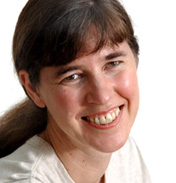If you’re wondering how a career coach might help you love your work more, this set of questions and answers may help. I prepared this for a local journalist recently.
(1) When you have a client coming to see you and he/she says she wants a career change what is your first advice for him/her?
My first advice is to fully understand what you want. You need to know what you are moving towards rather than just what you’re trying to get away from or how you are feeling about your current situation.
(2) Is this very common in Hong Kong where people feel that they want to make a change but they don’t know how to go about it? Or even what they want to do?
Yes, it is very common that people know what they don’t like but haven’t really figured out what they want. And there are also many cases when people feel pressured by family, friends or colleagues to stay in a job or career that they don’t like. Also, many people know what they want, but they don’t believe they can get it, or they don’t know how to start, so they end up stuck.
(3) How do you differentiate someone who needs a career change from someone who is just having a “bad day” at work, so, for example, instead of changing careers, maybe they just need to change companies/role within their company?
People don’t really start looking for a coach until they’ve had many bad days, not just one! It is quite common that people think they want a different job, but once they reflect more fully, they realize they can get what they want by changing something in their current role, such as how they handle the workload, how they relate to their boss, or other factors. When I work with people, we start simply with what they want, then we look at all the options for how they can get that, including changing themselves, their positions, their companies or their careers.
(4) How does one go about identifying what they want to do in their new career? And once identified, how would one go about achieving this goal? Especially if their new career is drastically different from their old one?
I use an assessment tool to help my clients discover the specific attributes of the career they want and to suggest what role that might be. We can also use the tool to assess the requirements of specific careers that appeal to them that they don’t know so much about. Moving into a brand new career is usually a long process that starts with building certainty and confidence in your choice so that you have the staying power to make the change. People making major career changes can expect to start with more learning or education, networking in the new field and volunteering or part time work before moving into full time work. Although the change process may take quite some time, if you have chosen the right career that you are really committed to, the whole process should be very enjoyable.
(5) What was the most “drastic”/interesting career change you have seen in your work as career coach?
I’m currently working with one client who is moving from being a senior corporate financial executive to becoming a song writer. Another one of my clients is a senior corporate IT manager who is starting a small business developing high-tech toys. I’m very excited for both of them! The change has been taking place over at least 2 years so far, and both of them are still working in their corporate jobs but happy and completely committed to the changes.
(6) Do people often have unrealistic goals in going about their career change? What are these unrealistic goals/expectations?
Many people have unrealistically cautious goals for their careers. They under-estimate how fun working can be and how successful and fulfilled they can feel if they learn how to believe in themselves and make it a priority to live their lives fully.
Many people have ‘wishful thinking’ goals for their careers but they are not willing to put in the time, money and effort to make it happen.
(7) Have you seen a lot of successful career changes in Hong Kong?
Yes, I have seen hundreds of them. I’m very proud of those clients who have turned around tough situations to get what they want from their careers and lives. It’s very rewarding to watch people progress towards what is most important to them. The experience of change touches them and empowers them into the future.
(8) In your experience, is it easy/difficult for people in Hong Kong to make a career change? How is it easy/difficult? And if difficult, what are the challenges and how do we overcome these?
It’s always both easy and difficult to change careers. It’s easy because when you follow what you really want, there is always a tail-wind moving you in that direction. It’s difficult because there are so many habits of thinking that we need to change in order to get what we want. Most of us doubt ourselves when we try to do something new, whether it’s changing the way we interact with the boss, or making contacts in a new field. That’s why it is so useful to have the support of a career coach.
(9) If someone were the sole breadwinner of his/her family and wants to make a career change which may cause some financial strain, what would your advice be to them?
When making a career change, you need to look at it holistically. There’s no point in ignoring some important aspects of your life, like your financial needs, while emphasizing other needs, such as creativity or freedom because that approach will only lead you from the frying pan into the fire. That’s why it may often take several years to go through the whole transition process. It’s possible to navigate the whole change process while meeting all your needs. It’s surprising how often what seem like very concrete barriers, such as financial needs, can disappear with some creative thinking.
(10) Is there an age limiting factor to career changing? Say for example, if a person were 50 years old, would you advise them against making a move? If yes, what is the age limit?
There is no age limit. I’ve seen people change at every age. In fact it’s quite common for people in their late 50s or 60s to change to a ‘retirement career’ that will keep them fulfilled at work for another decade or more.
(11) How can career assessment/coaching help with people wanting to make a career change?
Career assessments help people discover who they are, what they most want from their careers and what might be holding them back. Career coaching helps people find new insights into their career choices and strategies for making changes. Career coaching also provides the essential moral support for doing things differently, breaking from the norm, taking risks, trying something new, believing in yourself and thinking differently.
(12) What are the common feelings of people who have just changed careers? How/what do you advise your clients in terms of what to expect in a new career?
There are lots of different feelings when you start a new job, just like when you start anything new. No matter what you expect, you’re likely to have some of your expectations met and have some surprises. So, I would advise people to expect the unexpected! And also, as always, it is a good practice to keep noticing and reflecting on the positive aspects of the job, the reasons you decided to change, and the key components you are looking for in your work. This focus will help you get the best out of the position and make sure you make a positive start.
(13) Is there follow-up coaching after a client has moved onto their new career? Especially if there are feelings of doubt and uncertainty where the client is thinking, “Have I made the right decision?” – how would you advise your client in these situations?
Yes, I do suggest continuing with coaching into the new career. This is a relatively challenging time when many things are new and you will want to have extra support to reflect on what you’re experiencing so that you can make the best choices and set a good impression with your new colleagues.
(14) Have you seen cases where a person changes careers more than once before they finally get to place where they are happy? How many changes is the most you’ve seen? Is this common?
Nowadays people may change careers many times throughout their lives and there is nothing wrong with this. People’s needs and aspirations change all the time. People who are growing and developing will from time to time find themselves uninterested in the career ladder ahead of them and instead follow their desires to do something different. There are several stages in career development such as early career experimentation, initial career establishing independence, mid-career finding fulfillment, later career creating legacy and end career fulfilling dreams.
On the other hand, I’ve heard of people who have re-trained for another career and quickly found they don’t like it either. That’s an expensive mistake that could be avoided by using a career coach to help think much more clearly about what they really want from work before they make such a big change. While friends and family are well-meaning, they often give bad advice when it comes to career change because they don’t know how to help someone find out what suits them. People are often overly influenced by booming job markets or high status careers and forget to consider how suitable they are for the new type of work.
(15) Have you seen cases where a person moves back to their original career?
I have heard of this when people have made the decision to change based mainly on outside forces. For example during the dotcom boom, many people moved into the IT field even though it may not have suited them. They moved back to their original careers after the bubble burst. This is much less likely to happen if you’re more aware of your own career strengths and potential. A career coach can help you stay clear about your choices and make better decisions that will serve you in the long run.
Photo Credit: Anthony Delanoix



